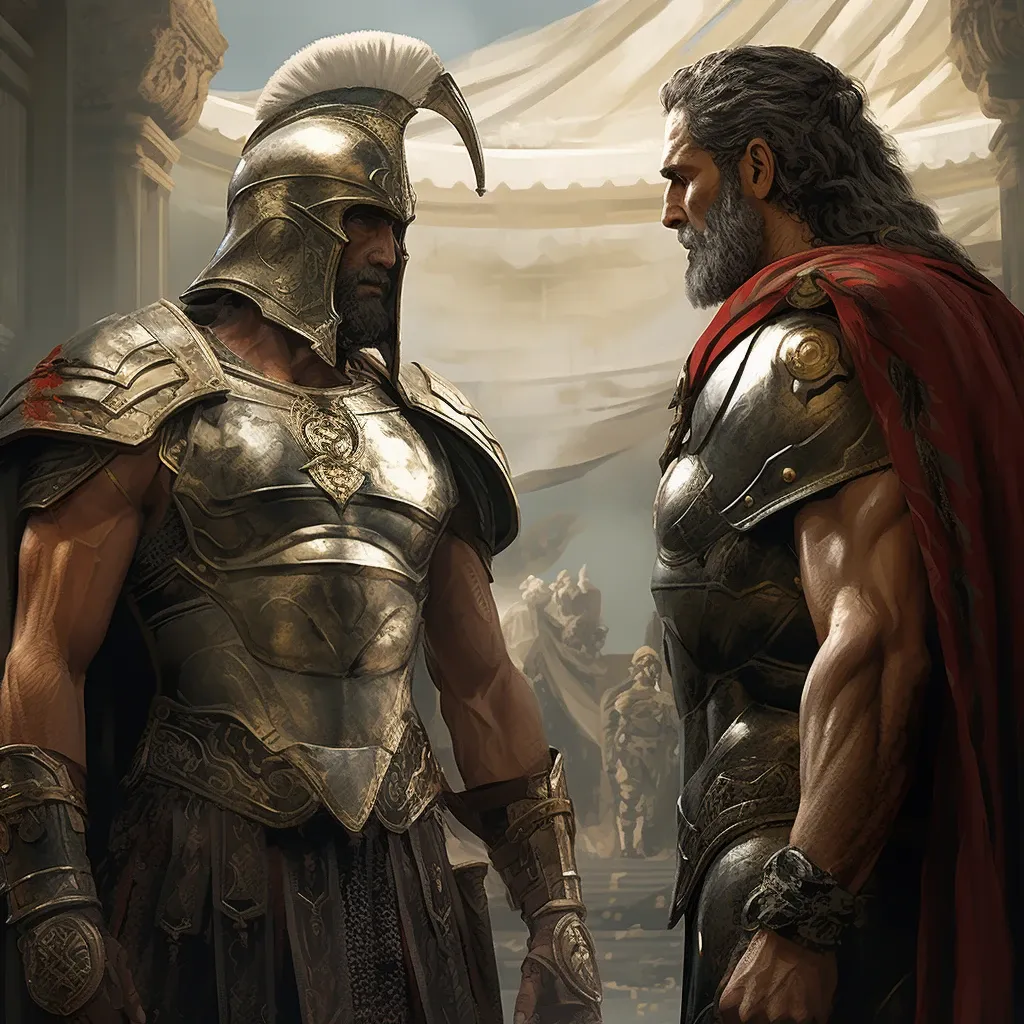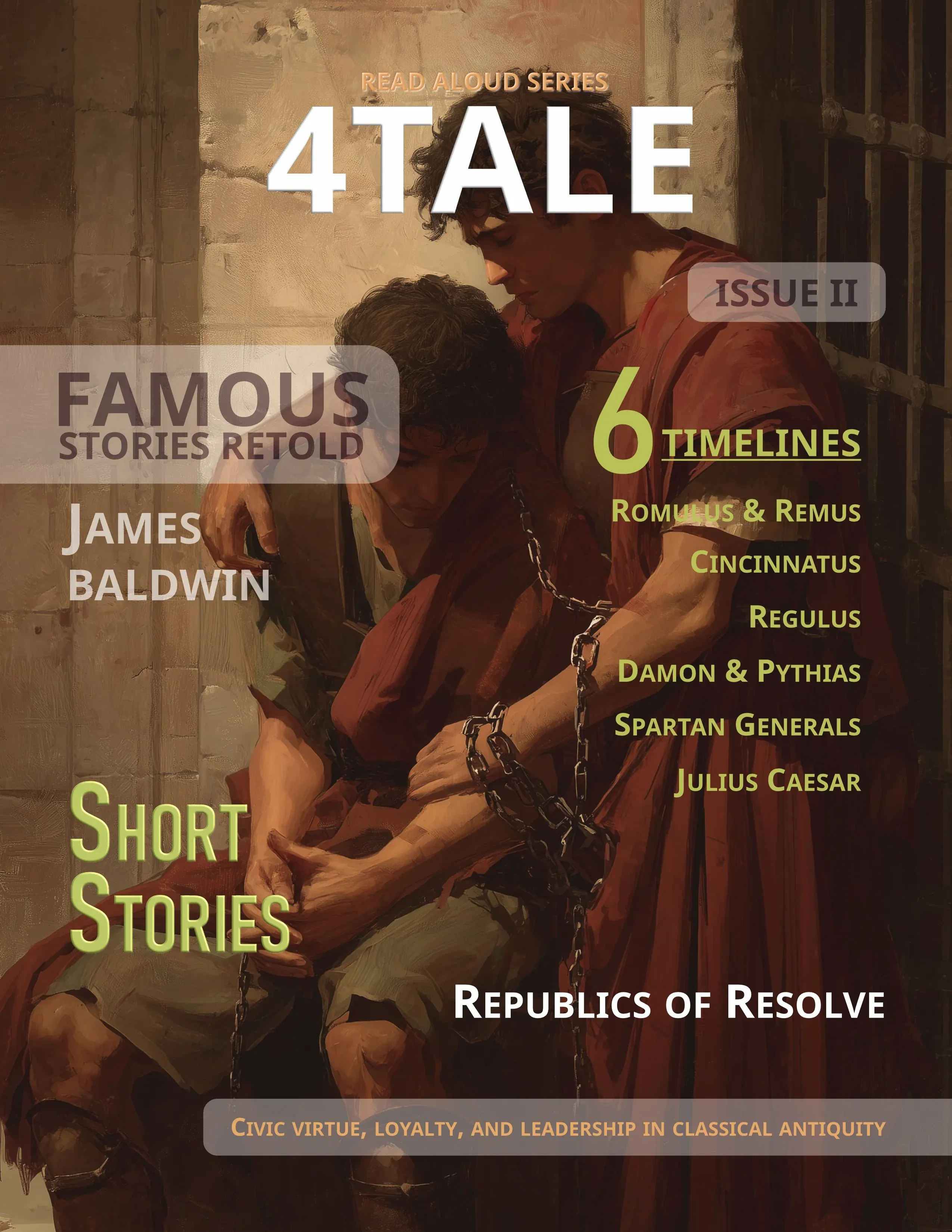
Heading

Spartan Simplicity: The Spartans were known for their brevity and directness in speech, known as laconic wit.
King Philip’s Threat: When King Philip of Macedon threatened to invade Sparta, he sent a message saying, "If I enter Laconia, I will level Lacedaemon to the ground."
A good book we like, we explorers. That is our best amusement, and our best time killer
- Roald Amundsen, Explorer
Efficient Communication: The Spartans' Laconic Reply to Philip
Journey with us back to ancient Greece, where words were wielded as powerfully as swords. Discover the story of the Spartans, renowned for their brevity and bravery, and their succinct confrontation with the ambitious King Philip of Macedon. Immerse yourself in a tale that showcases the might of measured speech and explore the implications of a single word. By the end, the potency of a laconic reply will be laid bare, proving that sometimes, it's not about how much you say, but what you choose to express.
Setting the Stage: Greece in the Time of the Spartans
Set amidst the glittering seas and sun-drenched landscapes lay Greece, a patchwork of fiercely independent city-states. Among these, several miles past Rome, was the famous state of Laconia, home to the tough and tenacious Spartans. Unlike their Roman counterparts, the Greeks were not united under a single banner. Instead, each city-state had its own rulers and laws, fiercely protecting their autonomy.
The Spartans: Bravery and Brevity
In the southernmost parts of Greece, the Spartans carved out a reputation for their simple lifestyles, iron will, and unparalleled bravery. These Laconians, as they were sometimes called, were known for their austere lifestyles and stoic nature. But perhaps one of the most distinctive qualities was their unique way of communicating. Spartans were known for their laconic wit, a reflection of their belief in brevity and succinctness. Laconic speech, as it came to be known, was characterized by short, sharp responses, often using fewer words than one would expect.
Podcast
Philip of Macedon: A Warlike King
Meanwhile, in the northern stretches of Greece, a warlike king named Philip ruled over the land of Macedon. With ambitions as vast as the terrain he ruled over, Philip dreamed of establishing his dominion over all of Greece. To achieve this, he marshalled a formidable army and set about conquering the Greek states. His military campaigns were successful, and one by one, the city-states fell under his rule, acknowledging him as their king.
The Threat to Laconia: Philip's Bold Claim
In his quest to conquer all of Greece, Philip of Macedon, the belligerent king, set his sights on Laconia, the land of the Spartans. Famous for their courage and succinct speech, the Spartans were a formidable opponent. Undeterred, Philip sent a threatening message to the Spartans, laying claim to their great city. His unabashedly arrogant words, "If I go down into your country, I will level your great city to the ground," echoed with the promise of a destructive conquest. This was a clear intimidation tactic designed to instill fear and submission among the Spartans, but the Lacons were not so easily subdued.

The Laconic Response: A Single Word of Defiance
The Spartans, true to their reputation for brevity, responded to Philip's audacious threat in a manner that has since become legendary. The reply to Philip was a single word, "IF". This laconic response embodied Spartan defiance, courage, and confidence. It indicated that they were not frightened by Philip's threats and that they remained resolute in their defense. The implication was clear: as long as there was an "if" in Philip's threat, there was doubt, and where there was doubt, there was hope for the Spartans.
The Legacy of the Laconic Answer: Its Impact and Significance
The laconic reply of the Spartans has echoed through history, becoming a symbol of defiant courage and brevity. It demonstrated their unyielding spirit and unwillingness to bow to threats. The legacy of this laconic answer lies not only in its brevity but in its profound impact. It serves as a reminder that words, no matter how few, can carry immense weight and significance. The Laconic answer stands as a testament to the powerful combination of bravery and brevity, and its significance remains relevant in today's world where words are often used as weapons. It encourages us to speak succinctly, but with strength, to confront threats with courage, and to never underestimate the power of a single word.
Conclusion
The Spartans' single-worded, laconic answer to Philip of Macedon powerfully symbolizes their indomitable spirit and unwavering bravery. This historical episode serves as a stark reminder of the might of measured speech, where less is indeed more. It is a testament to the potency of brevity in communication, echoing the wisdom that it's not about how much you say, but what you express. The Spartans' defiance encapsulated in the word 'if' resonates through the ages, a potent legacy of the power of a laconic answer.





